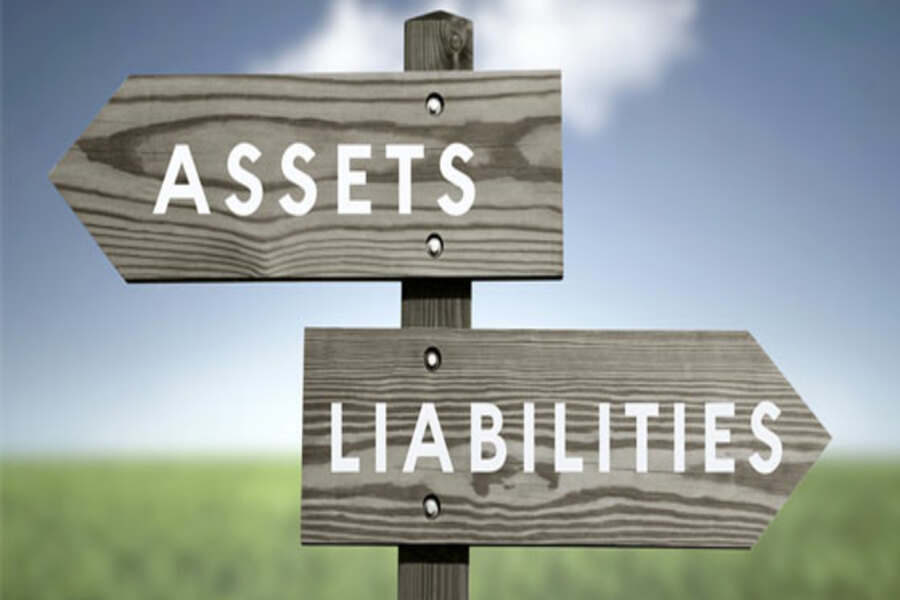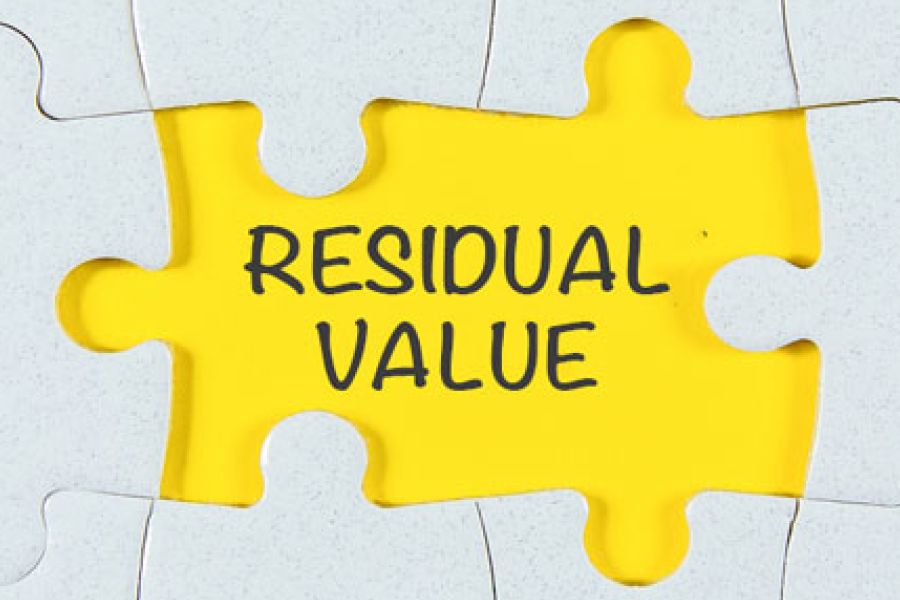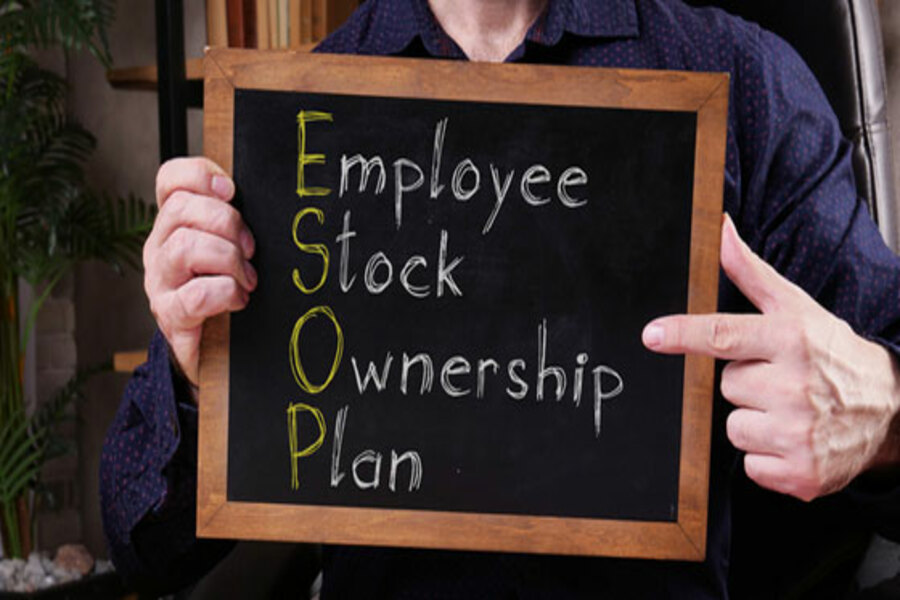The balance sheet — which shows a company’s assets and liabilities — is a logical starting point for valuing certain types of businesses. The cost (or asset) approach specifically focuses on this part of a company’s financial statements. Here’s an overview to help you understand this valuation technique. How does it work? When valuation professionals apply the cost approach, they convert the book values reported on the balance sheet to their respective fair market values. There are three key reasons that book value may not reflect fair market value to a hypothetical buyer or seller: 1. Use of historic cost. Under U.S. Generally Accepted Accounting Principles (GAAP), assets are recorded at historic cost. Over time, historic cost may understate market value for appreciable assets, such as marketable securities...

When valuing a business using the discounted cash flow method, residual (or terminal) value is a key component. The International Valuation Glossary — Business Valuation defines residual value as “the value as of the end of the discrete projection period in a discounted future earnings model.” Business valuation experts typically consider the capitalization of earnings method and the market approach when estimating residual value. Either (or both) may be appropriate, depending on the nature of the business, purpose of the valuation, reliability of the company’s financial projections and availability of market data. Capitalizing earnings The capitalization of earnings method is based on the assumption that cash flow will stabilize in the final year of the projection period. However, this is also the time period that’s subject to the...
Employee stock ownership plans (ESOPs) provide tax-saving opportunities for business owners who want to cash out and transfer ownership to employees without immediately giving up control of the business. However, valuing stock held by an ESOP is an ongoing challenge for the fiduciaries who administer them, especially when the sponsoring company is privately held. Valuation requirement An ESOP is a type of qualified retirement plan that invests primarily in the sponsoring company’s stock. There are about 6,500 ESOPs and equivalent plans in the United States today, employing roughly 14 million U.S. employees, according to the National Center for Employee Ownership. ESOPs are subject to the same IRS and U.S. Department of Labor (DOL) rules as other qualified retirement plans, including minimum coverage requirements and contribution limits. The fair...
In mergers and acquisitions (M&As), there are some buyers who are willing to pay a premium above the fair market value of the business on a controlling basis. This premium typically is the result of cost-saving or revenue-building synergies that a specific buyer can potentially gain by acquiring the seller’s business. When selling a business, it makes sense to find a buyer who’s willing to pay the highest possible price. Here’s some guidance to help identify synergistic buyers and establish a reasonable asking price. What is synergistic value? According to the International Valuation Glossary — Business Valuation, synergistic value is “the result of a combination of two or more assets or interests where the combined value is more than the sum of the separate values.” This often results...
Valuing a private business is a complex endeavor. But, when all is said and done, valuation analyses boil down to three general approaches. 1. Market approach Under this approach, valuators derive pricing multiples from public or private comparable transactions. These pricing multiples are then applied to the subject company to derive its value. For example, an expert might calculate a median price-to-earnings multiple of 4.5 based on a sample of six comparable transactions. Then the valuator would multiply the subject company’s earnings by 4.5 to arrive at its value. The expert also must consider whether adjustments are warranted to account for the differences between the subject company and comparable firms. Two popular methods fall under the market approach. First, the guideline public company method uses the prices paid for...
Purchase price allocations are an important part of negotiating a successful M&A transaction. The value of most assets — such as receivables, inventory and equipment — may be fairly straightforward. But the value of non-compete agreements is often a sticking point. To complicate matters, the buyer and seller may have conflicting tax objectives. This is because the buyer must amortize the amount allocated to non-competes over 15 years, whereas the seller must recognize the allocation as ordinary income. When the buyer and seller allocate different amounts to a non-compete agreement on their respective tax forms, they may trigger unwanted attention from the IRS. An objective business valuation professional can help the parties come to an agreement on the allocation amount before the deal closes. Factors to consider Under a...
Financial statements are an important source of data for valuing a business. But they tell only part of the story. An accurate business valuation hinges on a comprehensive understanding of the subject company’s relative performance and its future earnings power. To help clarify matters, experts often make various adjustments to the financials. Here are some examples. Non-recurring adjustments From a valuator’s perspective, an obvious shortcoming of financial statements is that they demonstrate historic results, not expected performance. Historical data is less relevant if operations are expected to change in the future. For example, a valuator might remove extraordinary or unusual items — such as proceeds from a legal settlement or short-term effects of hurricane damage — from a company’s income statement. Similarly, to better reflect future earnings potential,...
Valuation discounts for lack of control and marketability are major points of contention when companies or controlling shareholders are required to buy out shareholders who own minority interests. What’s appropriate depends on the facts of the case — and there’s an important distinction between statutory and contractual buyouts. Statutory buyouts In many jurisdictions, minority shareholders who are oppressed by controlling shareholders or who dissent to major business decisions are entitled to receive the “fair value” of their shares. Statutory appraisal rights provisions protect investors from being shortchanged in minority shareholder squeeze-outs, privatizations and leveraged buyouts, especially when the deal involves company insiders who may have a potential conflict of interest. It’s up to the court to determine a fair buyout price in these cases, but both sides usually...
An experienced business valuation professional considers more than just a company’s financial statements when quantifying its value. The professional conducts detailed interviews and asks for a variety of documents when gathering information to use to value the business — and some of this information may provide objective insight into how much the owners believe the business is worth. Here are some key examples. Buy-sell agreements Shareholders often protect their business interests with buy-sell agreements that contain valuation formulas to be used on a shareholder’s death or termination. Some detailed buy-sell agreements may even specify whether valuation discounts apply and, if so, how much. But if a buy-sell agreement has been superseded or is otherwise outdated, it may not be as relevant to current market values. Life insurance policies Life...
Over the last two years, market conditions — from cost increases and forced shutdowns to shortages of labor and supplies — have taken their toll on many businesses. While owners of distressed businesses may hope to turn things around, some will unfortunately shutter. Valuation is a prophecy of the future, not the past. So valuing a financially troubled company requires special treatment. Diagnosing the situation Valuing a distressed business is similar in many ways to valuing a healthy one: The valuation professional evaluates financial information and examines the business and its industry to assess the company’s ability to generate earnings. But troubled companies don’t behave in quite the same way as healthy companies, so valuators must approach them a little differently. One of a valuator’s biggest challenges in...











